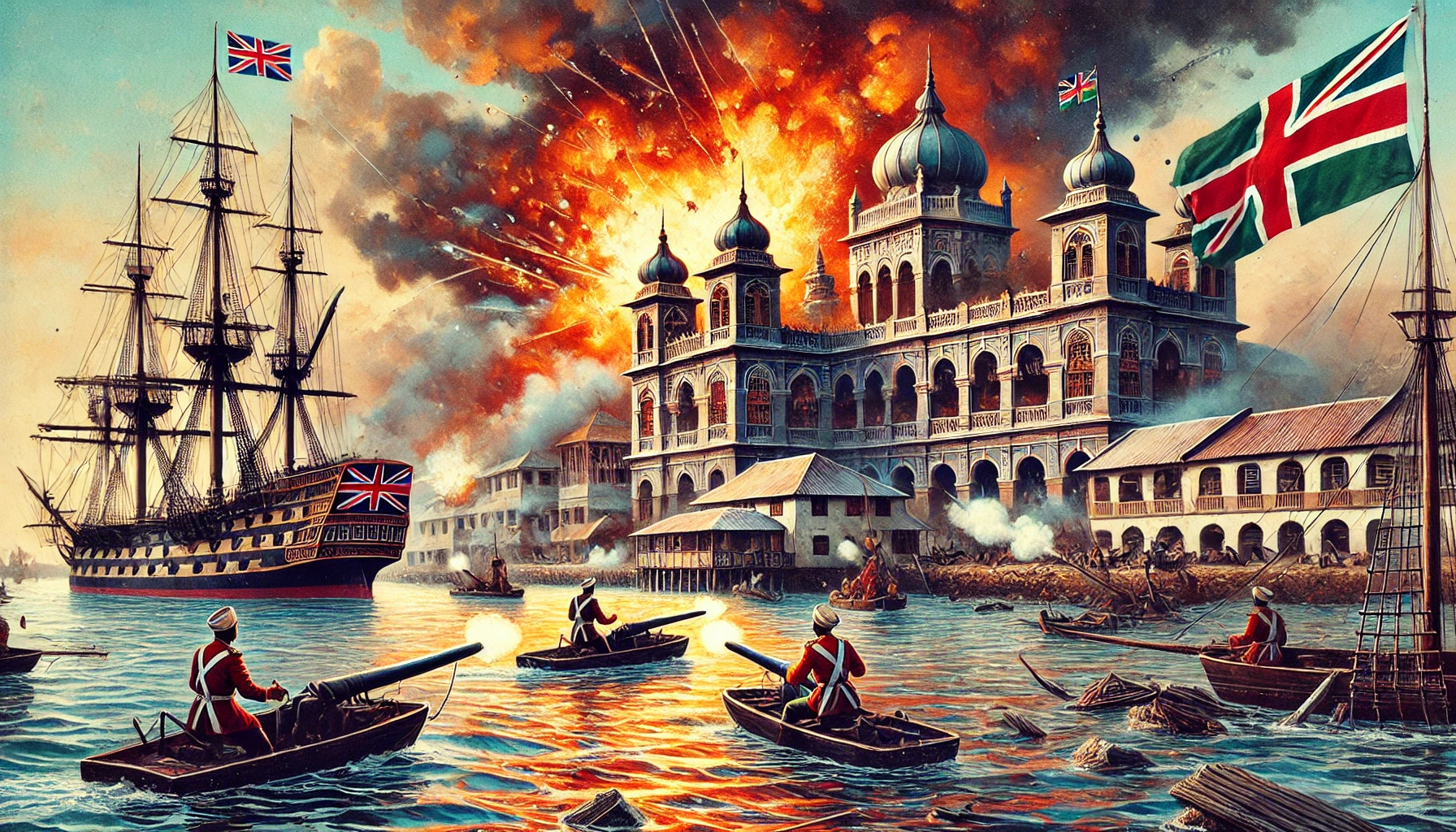The Anglo-Zanzibar War (1896)
The shortest conflict in history

The Anglo-Zanzibar War of 1896, lasting only 38-45 minutes, is the shortest in history. Triggered by the rise of Sultan Khalid without British approval, it ended with a swift victory for the United Kingdom - Image created by AI
The Anglo-Zanzibar War of August 27, 1896, remains one of the most extraordinary events in military history due to its record as the shortest war ever, lasting between 38 and 45 minutes. The conflict was triggered by a political power struggle following the death of Sultan Hamad bin Thuwaini, a pro-British ruler, who was succeeded by his cousin Khalid bin Barghash without British approval. The British opposed Khalid’s ascension and instead supported another candidate who was more favorable to their control.
Tensions escalated quickly. Khalid fortified the Sultan’s palace with an improvised army of around 3,000 men, artillery pieces, and the royal yacht HHS Glasgow. Despite diplomatic efforts, including ultimatums demanding Khalid’s abdication, he refused, and by the morning of August 27, the British forces were ready to take action. The British fleet, anchored in the port of Zanzibar, consisted of five warships, including HMS St. George and HMS Philomel, supported by marines and Zanzibari troops loyal to the British.
At exactly 9:02 a.m., the British warships opened fire on the palace, and within minutes, the wooden structure was engulfed in flames, with Khalid's artillery destroyed. By 9:40 a.m., the Zanzibar flag had been lowered, and the war was effectively over. Khalid fled to the German consulate, and the British quickly installed their preferred candidate, Hamoud bin Mohammed, ensuring continued British dominance in the region.
The brief conflict resulted in around 500 Zanzibari casualties, mostly due to the bombardment, while the British reported only one wounded sailor. Despite its brevity, the Anglo-Zanzibar War is emblematic of British imperial tactics, particularly the use of overwhelming force, or "gunboat diplomacy," to impose political control with minimal losses.
Though seemingly a minor skirmish, the Anglo-Zanzibar War had lasting effects on the political landscape of Zanzibar, marking the end of its autonomy and the beginning of a more formal British protectorate.
- Cooke, James J., “Madagascar and Zanzibar: A Case Study in African Colonial Friction, 1894-1897.”, African Studies Review, vol. 13, no. 3, 1970, pp. 435–43. JSTOR.
- Hudson, M.. "Anglo-Zanzibar War." Encyclopedia Britannica, August 20, 2024.
- Porter, Andrew, and Wm Roger Louis (eds), The Oxford History of the British Empire: Volume III: The Nineteenth Century, The Oxford History of the British Empire (Oxford, 1999; online edn, Oxford Academic, 3 Oct. 2011)
Toniatti Francesco - Professor of History and Oriental Studies, Master of Arts in International Relations
2025-07-27
Salvatore Ciccarello
